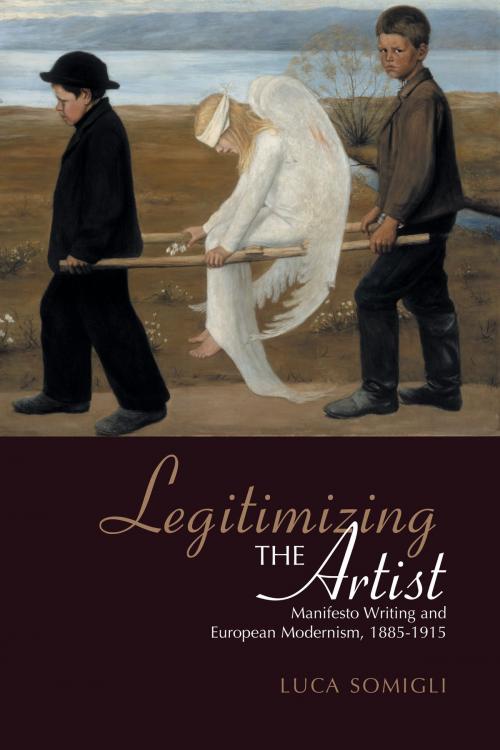Legitimizing the Artist
Manifesto Writing and European Modernism 1885-1915
Nonfiction, Art & Architecture, Art History, European, Fiction & Literature, Literary Theory & Criticism| Author: | Luca Somigli | ISBN: | 9781442659360 |
| Publisher: | University of Toronto Press, Scholarly Publishing Division | Publication: | December 15, 2003 |
| Imprint: | Language: | English |
| Author: | Luca Somigli |
| ISBN: | 9781442659360 |
| Publisher: | University of Toronto Press, Scholarly Publishing Division |
| Publication: | December 15, 2003 |
| Imprint: | |
| Language: | English |
In the late nineteenth and early twentieth centuries, the production of literary and cultural manifestoes enjoyed a veritable boom and accompanied the rise of many avant-garde movements. Legitimizing the Artist considers this phenomenon as a response to a more general crisis of legitimation that artists had been struggling with for decades. The crucial question for artists, confronted by the conservative values of the dominant bourgeoisie and the economic logic of triumphant capitalism, was how to justify their work in terms that did not reduce art to a mere commodity.
In this work Luca Somigli discusses several European artistic movements – decadentism, Italian futurism, vorticism, and imagism – and argues for the centrality of the works of F.T. Marinetti in the transition from a fin de siécle decadent poetics, exemplified by the manifestoes of Anatole Baju, to a properly avant-garde project aiming at a complete renewal of the process of literary communication and the abolition of the difference between producer and consumer. It is to this challenge that the English avant-garde artists, and Ezra Pound in particular, responded with their more polemical pieces. Somigli suggests that this debate allows us to rethink the relationship between modernism and post-modernism as complementary ways of engaging the loss of an organic relationship between the artist and his social environment.
In the late nineteenth and early twentieth centuries, the production of literary and cultural manifestoes enjoyed a veritable boom and accompanied the rise of many avant-garde movements. Legitimizing the Artist considers this phenomenon as a response to a more general crisis of legitimation that artists had been struggling with for decades. The crucial question for artists, confronted by the conservative values of the dominant bourgeoisie and the economic logic of triumphant capitalism, was how to justify their work in terms that did not reduce art to a mere commodity.
In this work Luca Somigli discusses several European artistic movements – decadentism, Italian futurism, vorticism, and imagism – and argues for the centrality of the works of F.T. Marinetti in the transition from a fin de siécle decadent poetics, exemplified by the manifestoes of Anatole Baju, to a properly avant-garde project aiming at a complete renewal of the process of literary communication and the abolition of the difference between producer and consumer. It is to this challenge that the English avant-garde artists, and Ezra Pound in particular, responded with their more polemical pieces. Somigli suggests that this debate allows us to rethink the relationship between modernism and post-modernism as complementary ways of engaging the loss of an organic relationship between the artist and his social environment.















